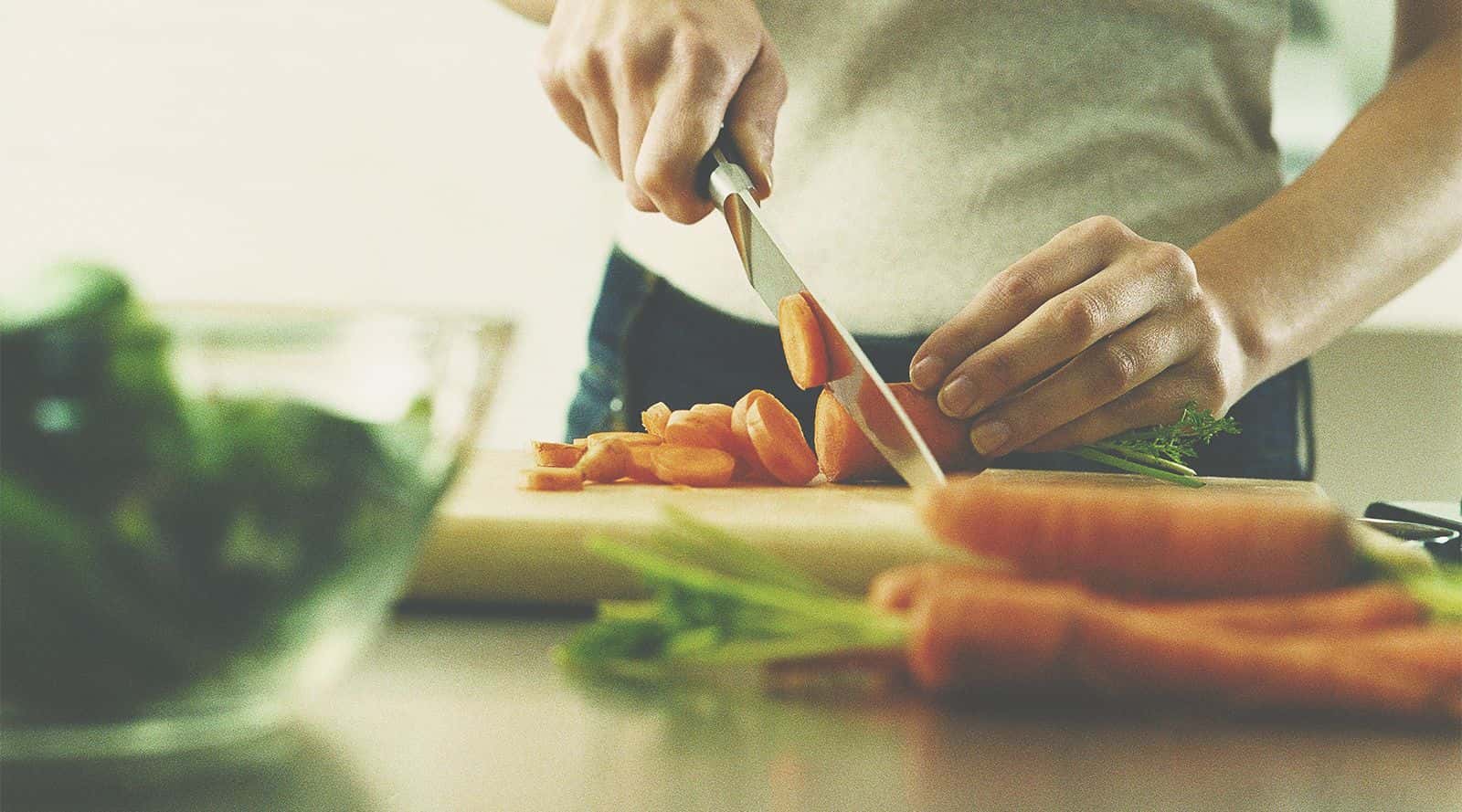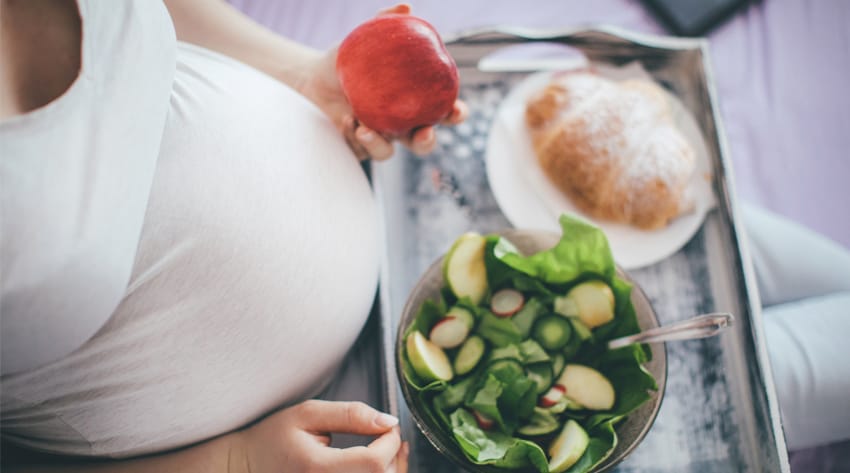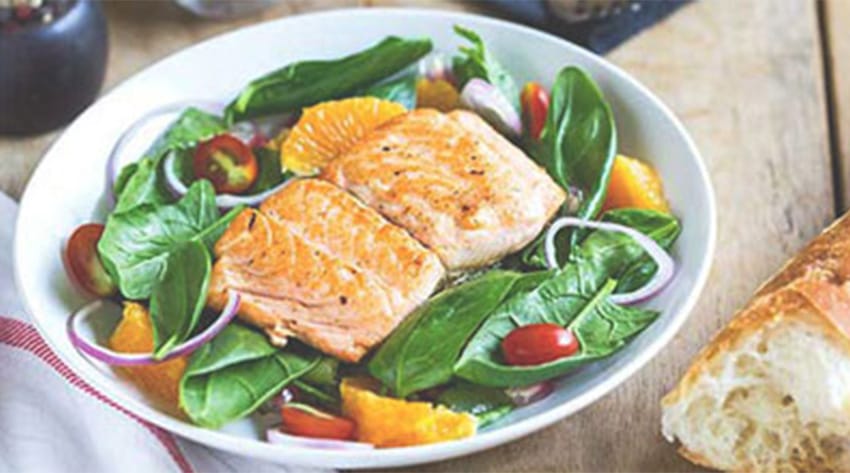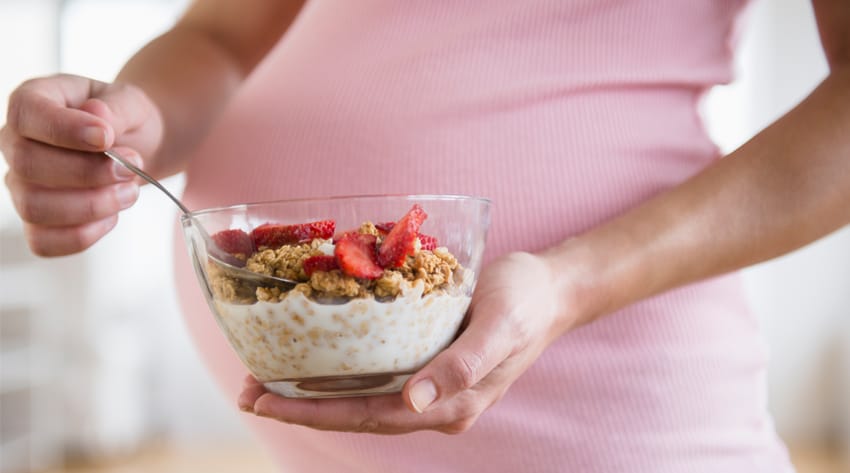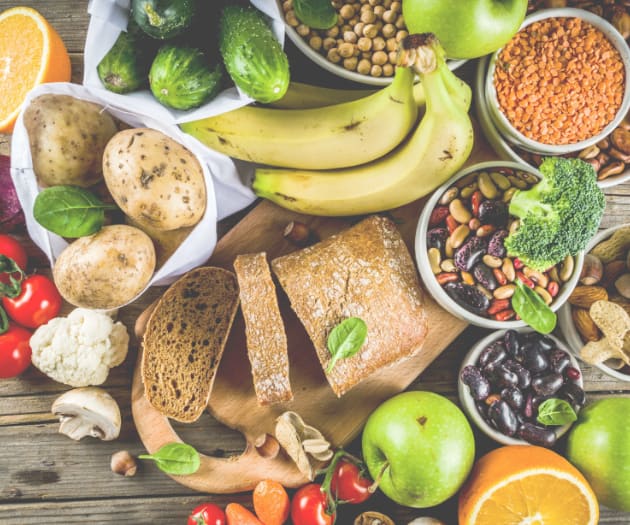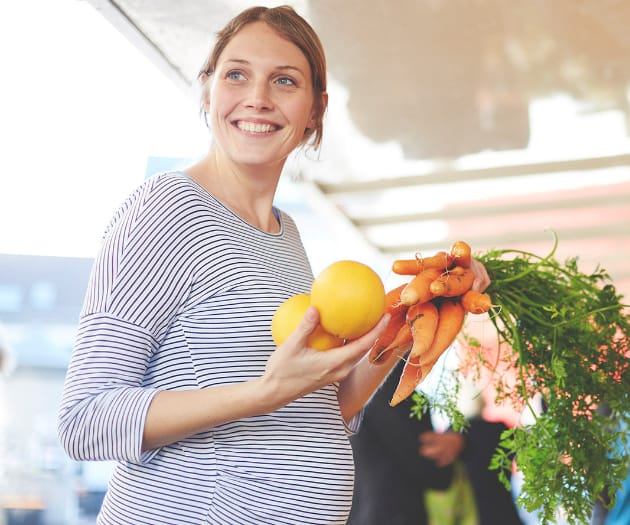Introduction
The ‘eating for two’ thing is actually a bit of a myth. At the beginning of pregnancy you should be eating the same amount as usual. There are however, a few things to bear in mind when you’re doing the food shop. Read our article to find out what to eat in each trimester of pregnancy.
Foods to eat when pregnant first trimester (week 0 - week 12)
If you’ve got morning sickness, there’s some evidence that ginger in pregnancy may help during those delicate first 12 weeks. Of course, you may have already discovered some other pregnancy myths: sickness doesn’t know when it’s morning and arrives whenever it feels like it. Read our checklist to find out more about how to cope with morning sickness.
Your pregnancy diet should include foods that are rich in iron, vitamin D, protein, and folate, so lean red meat, oily fish, broccoli, eggs, lentils and spinach get big thumbs up.
Contrary to what you may have heard, pregnant women can still enjoy runny eggs, so long as they are British Lion eggs – check they have the Lion stamp on them before you get cracking.
Folate during pregnancy is important as it can help prevent some birth defects including spina bifida. You can’t rely on food alone to give you all the folate you need, which is why pregnant women are advised to take a daily folic acid supplement as part of their pregnancy diet. It’s recommended to take 400mcg of folic acid daily, as early as you start trying and until you reach the twelfth week of pregnancy.
Vitamin D in pregnancy regulates the amount of calcium in the body, to help keep bones, teeth and muscles strong. Since it’s not easy to get all the vitamin D you need from food or sunlight you should consider taking a supplement with 10 micrograms of vitamin D. It’s important even if you’re not carrying a little human with growing bones teeth and muscles. If you’re low on iron you might feel tired and suffer from anaemia. If this happens your midwife may ask you to take an iron supplement.
Sadly, when it comes to food, there are quite a few ingredients off the menu when you’re pregnant. It’s important to take a note of these because some foods can actually harm your baby and their development. If you’re hungry for more info, we’ve got all the facts about everything you should and shouldn’t eat during pregnancy.
Pregnancy diet in the second trimester (week 13 - 27)
Your baby is becoming a proper little person now with their brain, eyes and bones starting to develop.
Eating cooked oily fish is a good idea during your pregnancy diet. It’s rich in omega-3 fatty acids which are important for baby’s brain cells. It’s important to know that while a portion or two of fish is recommended, you should limit yourself to only two portions of oily fish each week. For baby’s bones and teeth, try drinking more milk to get much-needed calcium.
If you’ve booked a babymoon or are out enjoying some sunshine make sure you’re covered in high SPF sunscreen because being pregnant makes you more prone to sun damage – it’s yet another thing to blame on those hormones. With your new sun-safety routine you’ll need to get your vitamin D elsewhere to help you absorb calcium. Taking supplements with 10 micrograms of vitamin D is recommended whether or not you’re pregnant.
Best food for pregnant woman in third trimester (week 28 - 41)
Now’s the time to allow yourself that extra portion during your pregnancy diet. It’s still not ‘eating for two’; more like eating for one and a bit. In the third trimester you might need an extra 200 calories a day. It’s a good idea to eat wholegrain carbohydrates or fruits and veggies which will add fibre to prevent constipation. Fresh fruit gives you vitamin C which helps the immune system and protects cells and keeps them heathy, so it’s really important you get plenty of it during pregnancy.



